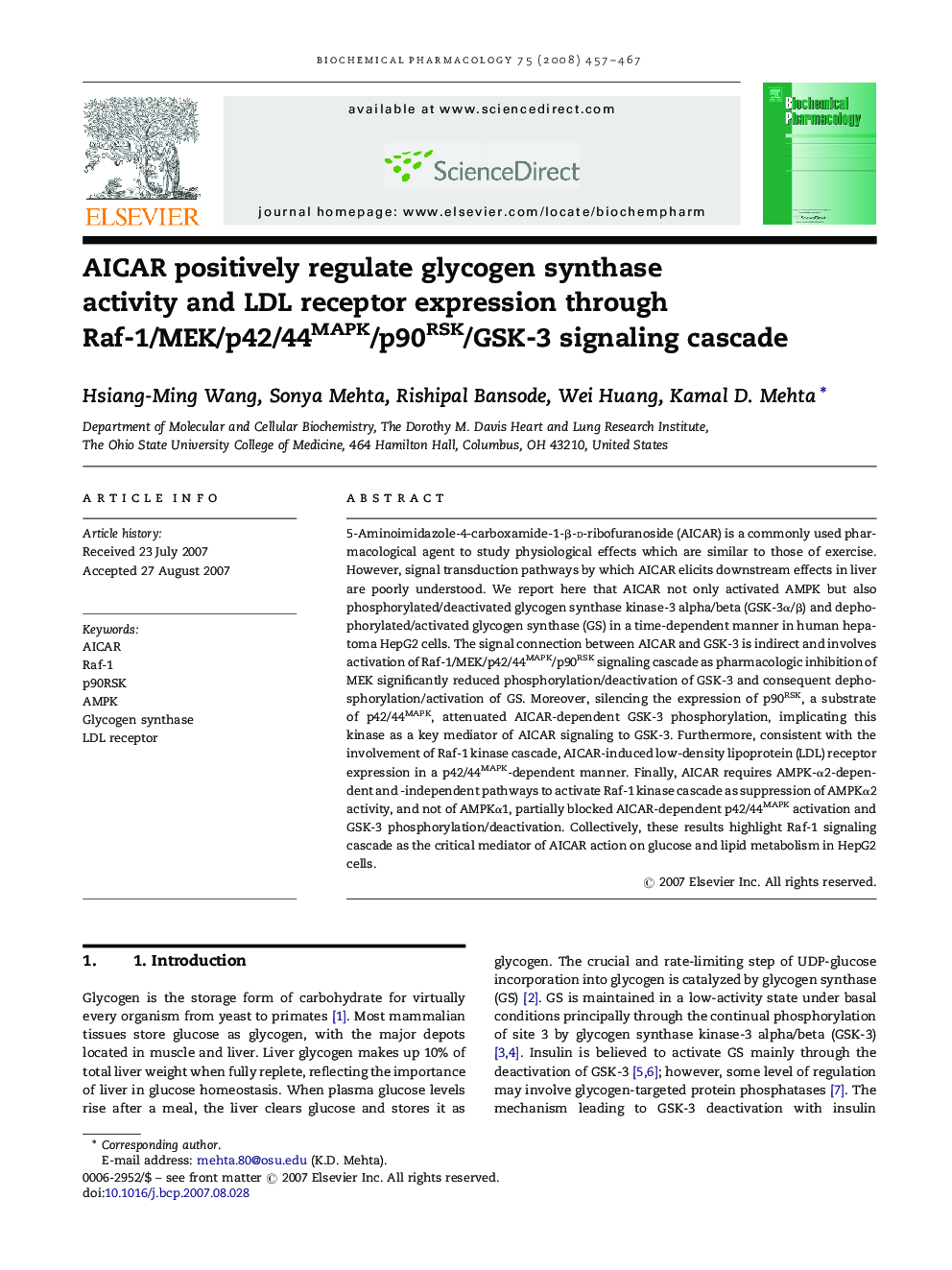| Article ID | Journal | Published Year | Pages | File Type |
|---|---|---|---|---|
| 2514643 | Biochemical Pharmacology | 2008 | 11 Pages |
5-Aminoimidazole-4-carboxamide-1-β-d-ribofuranoside (AICAR) is a commonly used pharmacological agent to study physiological effects which are similar to those of exercise. However, signal transduction pathways by which AICAR elicits downstream effects in liver are poorly understood. We report here that AICAR not only activated AMPK but also phosphorylated/deactivated glycogen synthase kinase-3 alpha/beta (GSK-3α/β) and dephophorylated/activated glycogen synthase (GS) in a time-dependent manner in human hepatoma HepG2 cells. The signal connection between AICAR and GSK-3 is indirect and involves activation of Raf-1/MEK/p42/44MAPK/p90RSK signaling cascade as pharmacologic inhibition of MEK significantly reduced phosphorylation/deactivation of GSK-3 and consequent dephosphorylation/activation of GS. Moreover, silencing the expression of p90RSK, a substrate of p42/44MAPK, attenuated AICAR-dependent GSK-3 phosphorylation, implicating this kinase as a key mediator of AICAR signaling to GSK-3. Furthermore, consistent with the involvement of Raf-1 kinase cascade, AICAR-induced low-density lipoprotein (LDL) receptor expression in a p42/44MAPK-dependent manner. Finally, AICAR requires AMPK-α2-dependent and -independent pathways to activate Raf-1 kinase cascade as suppression of AMPKα2 activity, and not of AMPKα1, partially blocked AICAR-dependent p42/44MAPK activation and GSK-3 phosphorylation/deactivation. Collectively, these results highlight Raf-1 signaling cascade as the critical mediator of AICAR action on glucose and lipid metabolism in HepG2 cells.
